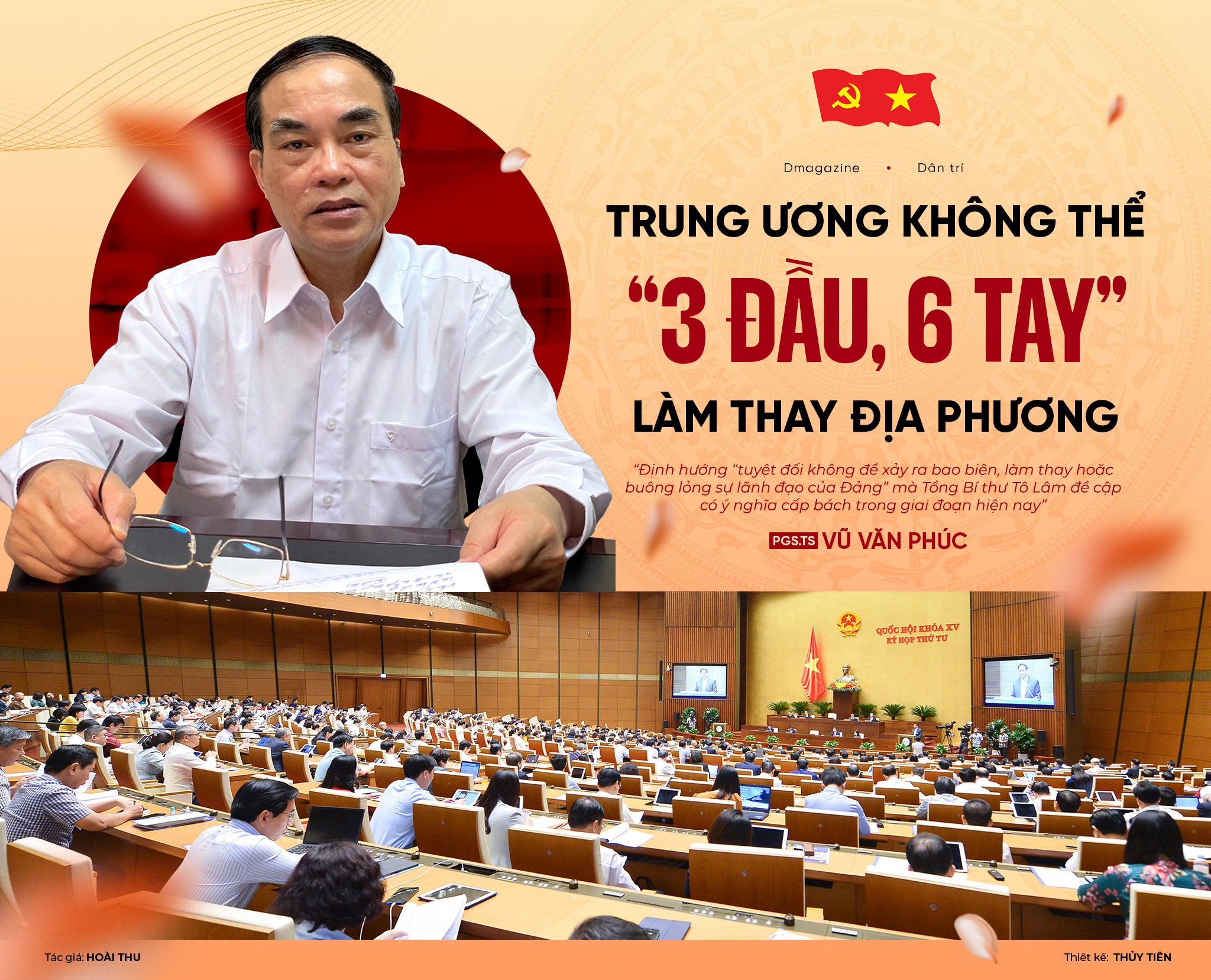
Speaking with Dan Tri reporter, Associate Professor, Dr. Vu Van Phuc (Vice Chairman of the Scientific Council of Central Party Agencies, former Editor-in-Chief of Communist Magazine) highly appreciated the important message that General Secretary To Lam mentioned regarding continuing to strongly innovate leadership methods, improving the leadership capacity and governing capacity of the Party.
Quoting the General Secretary , Mr. Phuc said that the country is facing a new historical moment, a new era, an era of national growth. "The requirement to strongly innovate leadership methods, improve the leadership capacity and governing capacity of the Party to continue to move the nation forward is urgent," Mr. Phuc emphasized.

When raising the issue of the Party leading without making excuses or doing things on behalf of others, the General Secretary pointed out one of the shortcomings in the Party's leadership method: the situation where Party agencies do many things that should be the functions and tasks of State management agencies. According to him, what specific solutions need to be implemented to change this reality?
- The orientation of "absolutely not allowing excuses, replacing or loosening the Party's leadership" is of urgent significance in the current period. Because besides great achievements, the innovation of the Party's leadership method still has limitations.
In which, the General Secretary pointed out that the organizational model of the Party and the political system still have shortcomings, making it difficult to distinguish the boundary between leadership and management, easily leading to excuses, replacing or loosening the leadership role of the Party. In reality, there is still a situation of "excuses, replacing or loosening the leadership of the Party".
Recently, some Party organizations have violated the principle of democratic centralism and working regulations; lacked responsibility and slackened leadership to the point of requiring disciplinary action.
Currently, there are some Party secretaries who sometimes decide all the work of the People's Committee. For example, with projects, the Party only gives the policy, but the decision on who will invest, who will carry out the projects, and how to organize the bidding is the job of the People's Committee. However, there are some provincial Party secretaries who sign the investment issues of the projects, thus doing it for them. This situation often happens with personnel who, before being elected as Party Secretary, have held the position of Chairman of the People's Committee, so when they become Party Secretary, they easily make excuses and do the role of the government, which is "mistaking the role".
The case of laxity occurs with inexperienced Party secretaries whose capacity is often not up to the task. Therefore, in many cases, everything is left to the government. The situation of making excuses, doing things for others, or loosening the Party's leadership role is an issue that needs to be clearly understood.
General Secretary To Lam also repeatedly emphasized the need to "promote decentralization and delegation of power with the motto "locality decides, locality acts, locality takes responsibility". The central government cannot have "three heads and six arms" to act on behalf of the locality; superiors cannot make excuses or act on behalf of subordinates, so decentralization and delegation of power must be strong as the spirit of the General Secretary stated.
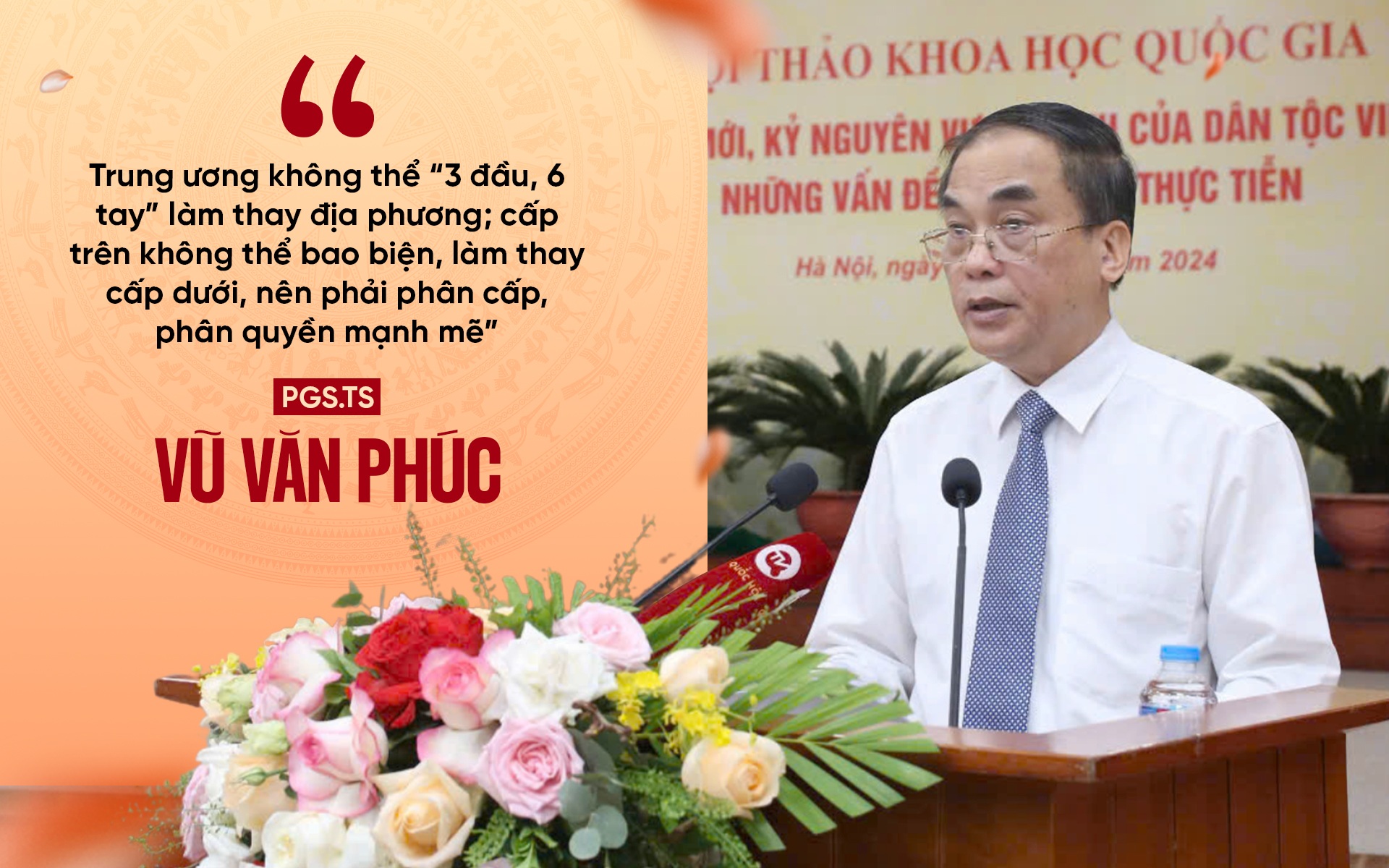
Besides, many contents and tasks to innovate the Party's leadership methods have been proposed by the Party for many terms, but so far in practice, implementation has not been really effective, such as cadres, Party members, especially leaders have not really "taken the lead as exemplary models, regularly self-criticized and criticized".
The institutionalization of the Party's guidelines, lines and policies into State laws has not been timely, complete, synchronous, unified and still overlaps; the introduction of outstanding representatives into the State apparatus has not been correct and accurate, leading to the selection of the wrong cadres, a number of leaders and managers, including high-ranking cadres, have been disciplined...
These limitations are an objective reality. Therefore, it is even more urgent to continue to innovate more strongly the leadership method and improve the leadership and governing capacity of the Party.
Reality is always moving and developing, so awareness is a process, innovation in the Party's leadership method must be gradual, not hasty, subjective, or voluntaristic, but also not conservative, stagnant, or dogmatic, hindering the country's development. That is why General Secretary To Lam requested to unify awareness and strictly implement the Party's leadership and governing methods.

Perfecting the institution - "the bottleneck of bottlenecks" - is also an important task that has been repeatedly emphasized by Party leaders. So, in the face of the fact that there is still the disease of officials working administratively, mechanically; negative, corrupt, "torturing people", "torturing businesses", only doing things for personal gain, deliberately slowing down work, asking for opinions in circles, blaming the institution, blaming fear of responsibility... what "strong enough medicine" do we need?
- Of the three biggest bottlenecks today, namely institutions, infrastructure and human resources, institutions are considered the "bottleneck" of "bottlenecks". To overcome this bottleneck, we must first pay attention to the issue of people, cadres, civil servants...
Party members, cadres, civil servants and public employees must wholeheartedly serve the Fatherland and the People. Anyone who is afraid of making mistakes, afraid of responsibility, does not dare to do things, shirks responsibility, works half-heartedly, is bureaucratic, mechanical or has negative behavior, harasses people, businesses... must be replaced immediately.
In the long term, we must combine streamlining the organizational apparatus with restructuring the staff with sufficient qualities and abilities equal to the tasks, reasonable staffing, and standardization of titles.
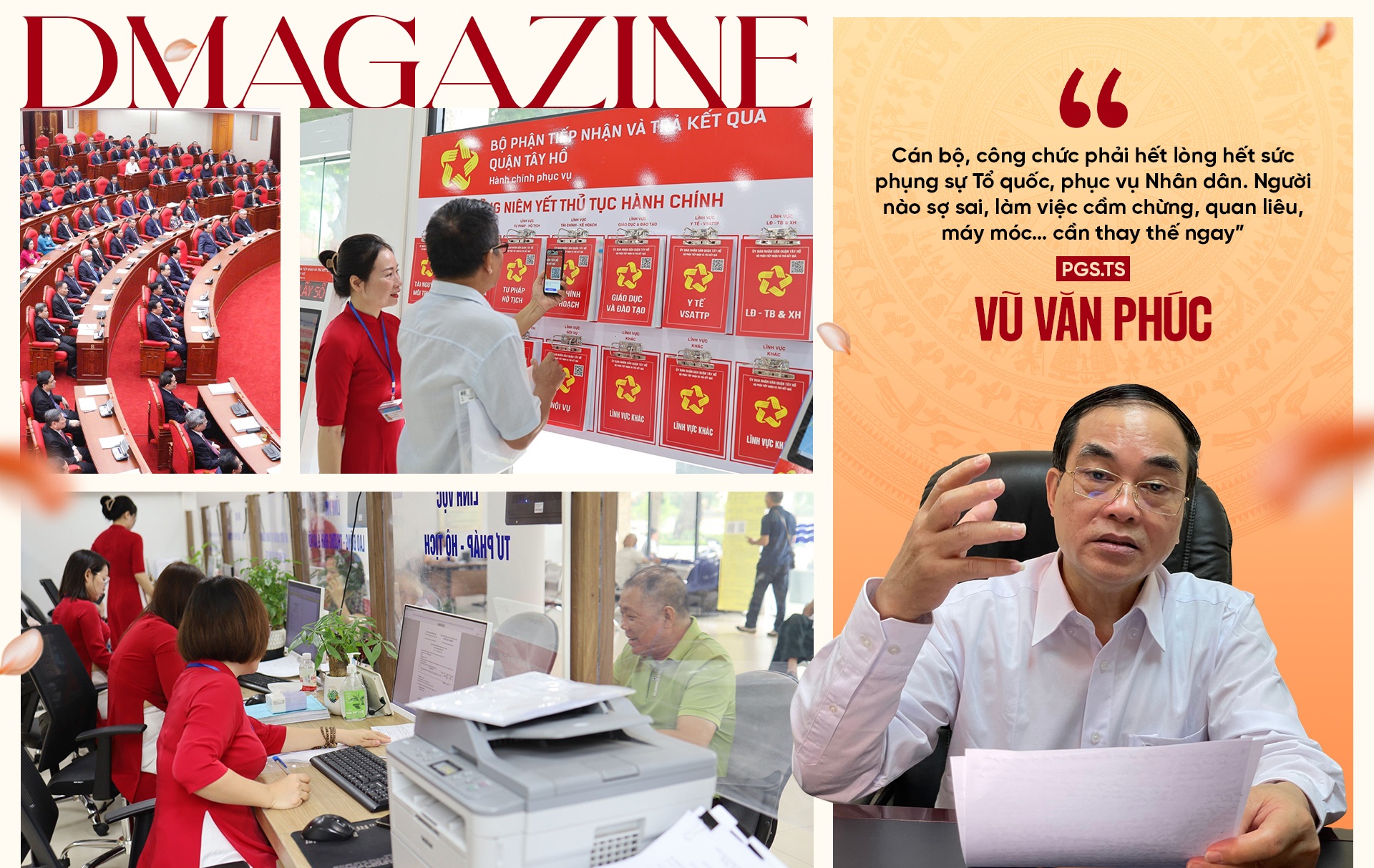
Along with that, it is necessary to issue regulations on the framework of standards and criteria for arranging cadres at each level, from the central to the grassroots level, for each type, to proactively review and determine what can be arranged immediately.
We also need to strongly innovate the work of recruitment, training, promotion, appointment, rotation, transfer, and evaluation of cadres in a practical direction, because finding people, on the basis of specific measurable products, has no forbidden areas, no exceptions in evaluating cadres. In particular, there needs to be an effective mechanism to screen and remove from work those who do not have enough qualities, abilities, and prestige.
More deeply, to overcome the above "diseases", it is necessary to make stronger institutional breakthroughs; remove bottlenecks; take people and businesses as the center; mobilize and unblock all resources; develop science and technology synchronously and smoothly, all for the economic, cultural and social development of the country and to develop and improve the material and spiritual life of the people.
In addition, although the current administrative reform has achieved some results, there are still many shortcomings. In fact, the Vietnamese administrative system is a great obstacle to the country's development. Many outdated regulations that have not been eliminated are causing inconvenience to the people and making it difficult for socio-economic development.
The slow digitalization of the administrative system, requiring too much paperwork and complicated procedures, is an obstacle and a burden for the economy. Furthermore, some ministries, branches, and public agencies arbitrarily issue many types of documents and sub-licenses (containing "group interests"), causing production and business activities to be blocked, affecting the country's economic growth rate.
For the economy to develop, the administration must be open and convenient. Therefore, it is necessary to promote reforms in the direction of building a simple, streamlined e-administration and digital administration that meets the requirements of developing the digital economy and digital society now and in the future in the spirit of doing whatever is beneficial to the people, the country, and the economy.

To prepare well for the Party Congresses at all levels towards the 14th National Party Congress, in your opinion, how can we overcome the "disease" of personnel work that the General Secretary mentioned, that is, those who are not re-elected keep safe, are defensive, and do not dare to implement new things; personnel expected to participate in the new Party Committee keep to themselves, do not want to collide, and are afraid of losing votes; calculate for relatives, acquaintances, and "cronies" to enter leadership positions or use "organizational tricks" to push away people they do not like?
- We need to synchronously implement solutions on personnel work.
First of all, in selecting cadres, it is necessary to strictly implement the principles of democratic centralism, collective leadership, individual responsibility, and clear assignment and division of authority and responsibility for each individual member of the leadership, even to each person in the apparatus of the agency, unit, and locality; clearly define the relationship between authority and responsibility of each person for each job...
Second, it is necessary to determine the necessary and sufficient criteria in the value system that a cadre must have in terms of political qualities, moral qualities, qualifications, and ability to perform tasks, etc., in order to select the right person. The cadre himself must truly set an example, absolutely not allowing relatives to take advantage of his position and authority to commit corruption or to take advantage of and abuse his position and authority for the benefit of his family or group interests.
That requires the cadres who handle public affairs to be truly impartial, objective, open, transparent, unsentimental, and truly unaffected by "relationships, money, descendants"...
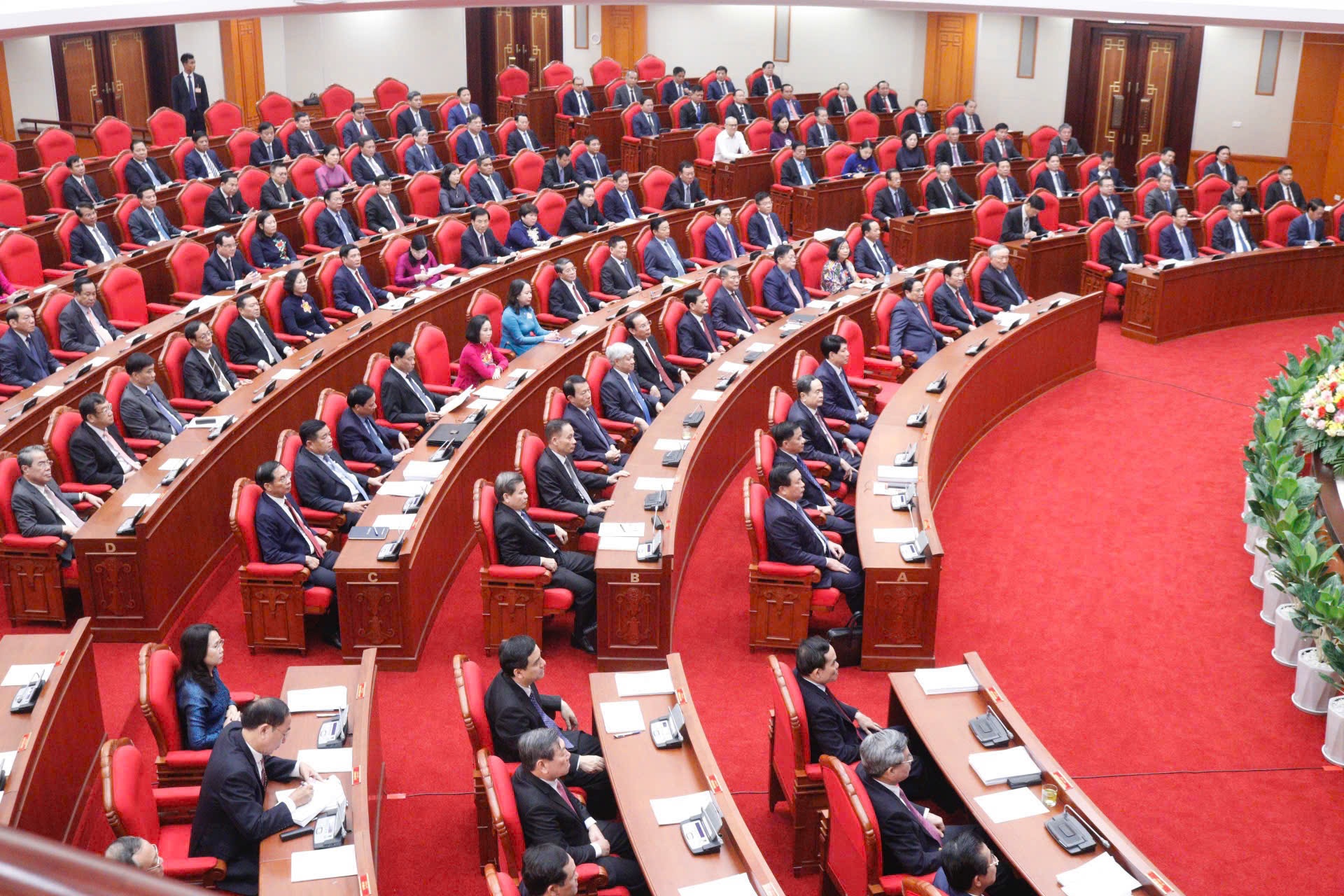
Third, develop a set of criteria to identify strategic-level cadres and specific criteria for selecting and screening cadres in a public, transparent, objective, and scientific manner. Along with that, there needs to be a set of criteria to properly evaluate the work efficiency of cadres in order to have a suitable remuneration regime.
Only with correct assessment can we use the right staff, fully promote their talents and virtues, and create conditions for them to fully develop their abilities and strengths.
Fourth, cadres need to be assigned tasks that are commensurate with their talents; rotation should be promoted so that cadres can be trained and tested in practice, especially in difficult, complicated, and important areas.
Fifth, respect, recognize, and honor the contributions of officials to the people and the country; have policies to create favorable conditions in terms of facilities and appropriate treatment for officials based on the effectiveness of their work and contributions to the country.
In particular, the appointment of titles, positions, and the creation of conditions for career advancement for cadres must be based on work efficiency, not on seniority or age, and absolutely not on relationships, money, descendants, etc.
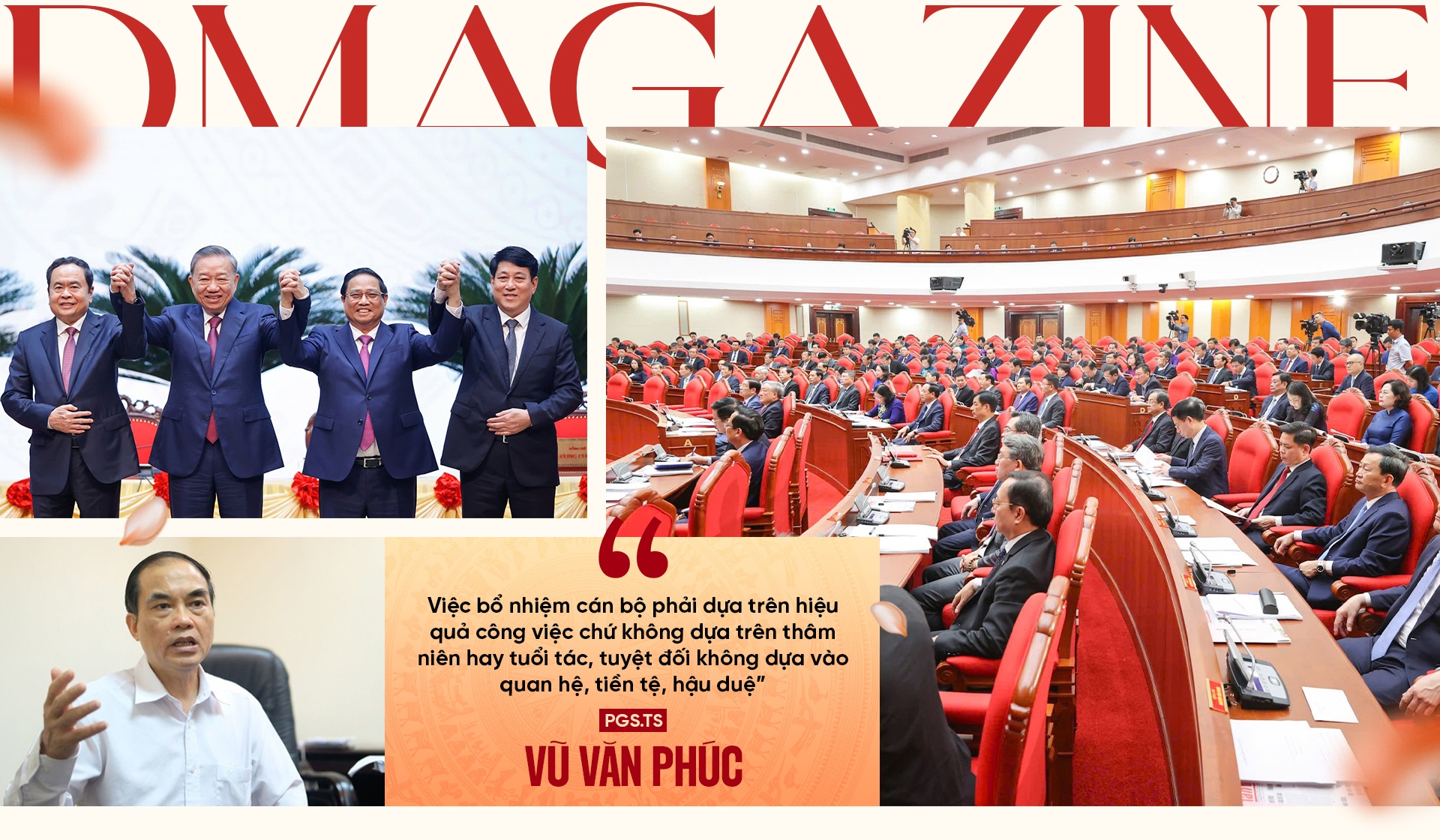
Sixth, determine the authority and responsibility of the subjects of selecting cadres in a comprehensive manner, the relationship between individuals and collectives, and between collectives and collectives.
In this regard, it is necessary to clearly define the responsibility of leaders in recommending virtuous and talented people for training and development and to take responsibility for their recommendations; to develop mechanisms and sanctions to strictly handle subjects when making wrong selections or selecting the wrong cadres...
In addition, there needs to be a mechanism to detect, plan, train, foster, and arrange cadres with outstanding qualities, abilities, and development prospects into leadership and management positions, including those at higher levels, especially young, capable, prestigious, and virtuous cadres.
Selecting the right cadres is an urgent issue, also very difficult and complicated, requiring a very scientific, elaborate and effective solution... Although it is difficult and complicated, we cannot not do it, on the contrary, we must do it very well. Because only then can we create a clear change, overcome the limitations and weaknesses in Party building work.
Seventh, build substantive and effective institutions to prevent and combat "cronyism" and "group interests".
"Crony relations" is an abnormal relationship between businessmen and government officials, who combine together to gain illegitimate benefits in economics and politics.
Because of this, "interest groups" try to cling to their own beneficial thinking without changing their thinking, refusing to reform administration, and even distorting mechanisms and policies that benefit their group's interests. This is often called policy corruption.
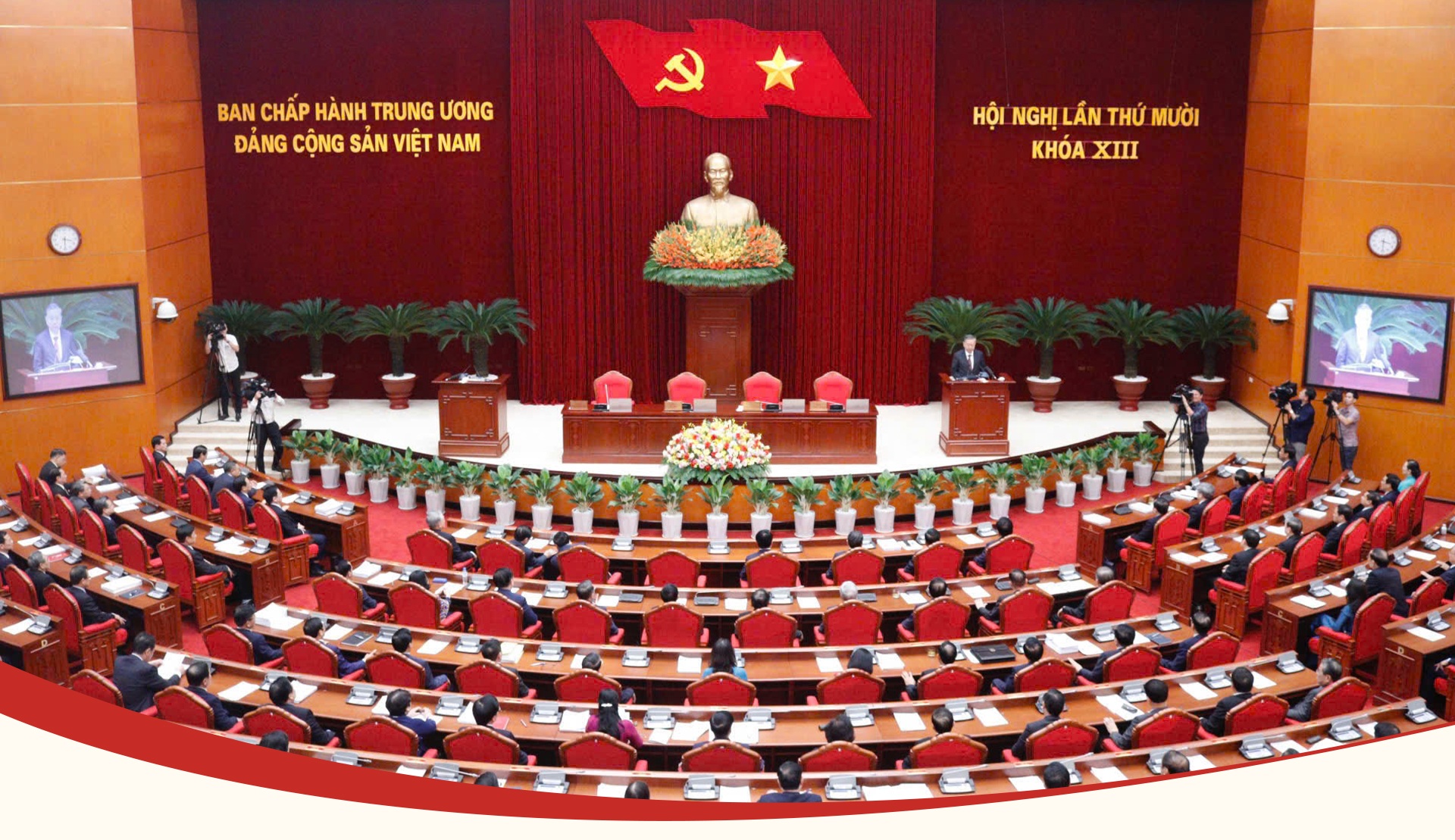
In order to achieve the goal of socio-economic development, we must change our thinking, "untie", be decisive, break through, and surpass ourselves. But this is really a very difficult problem. In your opinion, what issues should we prioritize to untie and break through?
- First of all, it is necessary to innovate thinking in a direction more suitable to the socialist-oriented market economy, the digital economy, green economy, circular economy...
Currently, there is still a mindset of wanting to "hold on to the old mechanism", wanting the State to still deeply intervene in production and business activities; the State regulates prices, making the price mechanism of many goods not truly follow the market mechanism...
Many remnants of old thinking and "group interest" thinking are creeping into legal documents in one form or another. If they are not eliminated, market rules cannot be effective.
Therefore, it is necessary to strongly and drastically innovate thinking, eliminating all remnants of old, conservative, and bureaucratic thinking.
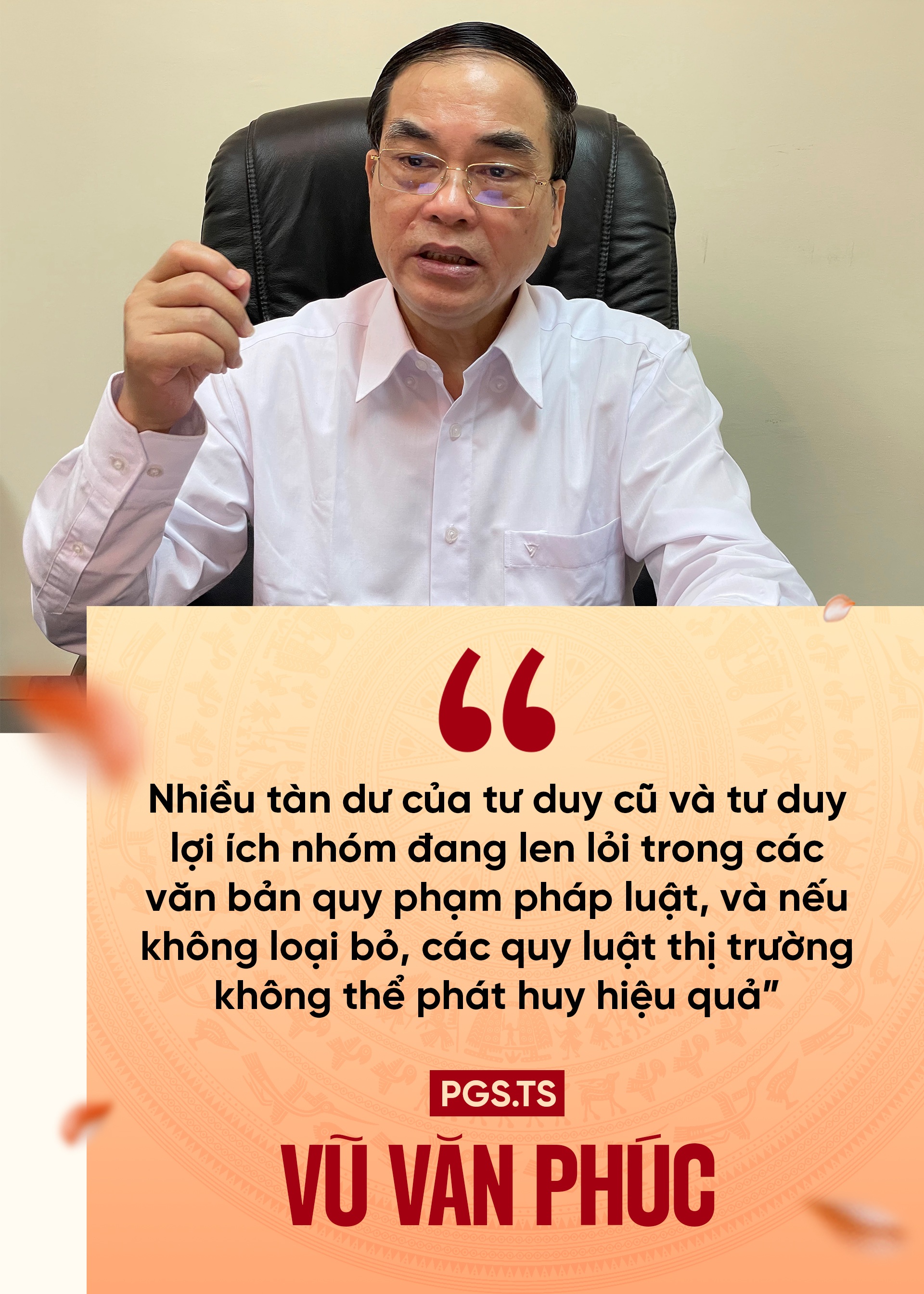
Second, we must promote digital transformation. General Secretary To Lam affirmed that we are facing the need for a revolution with strong and comprehensive reforms to adjust production relations and create new momentum for development. That is the digital transformation revolution, applying science and technology to restructure production relations in line with the remarkable progress of productive forces...
To do so, leaders of Party committees, authorities, agencies, businesses and people must focus on perfecting institutions and the legal system, ensuring that the legal framework does not become a barrier to development; and unleashing and maximizing all social resources.
In particular, it is necessary to reform and build a streamlined, effective and efficient State apparatus, cut down on unnecessary intermediaries, and reorganize in a multi-sectoral and multi-field direction.
There are still many hidden bottlenecks and barriers that are hindering and sabotaging the development of the economy, so it is necessary to resolutely review and eliminate them if we hope that the Vietnamese economy will have a chance to develop.
Another very important task in the new period, according to General Secretary To Lam, is to streamline the organization of the political system. This is a very difficult and sensitive issue, but the General Secretary emphasized that it must still be carried out because to have a healthy body, one must "take bitter medicine" and endure the pain of "tumor surgery". In his opinion, what is the significance of this determination in the current context, especially when throughout history, we have reformed and streamlined many times but the results have not been as expected?
- The political determination to "endure pain to have surgery on the tumor" that General Secretary To Lam emphasized is very important for the country to develop rapidly, make a breakthrough and soon achieve the goal of making Vietnam a developed country with high income, on par with the world powers.
The 100th anniversary of the country's founding is not far away. To achieve strategic goals, we not only need extraordinary efforts and outstanding efforts, but also cannot allow ourselves to be slow, lax, inaccurate, unsynchronized, or uncoordinated in every step.
To do so, it is necessary to urgently carry out a revolution in streamlining the organization and apparatus of the political system.
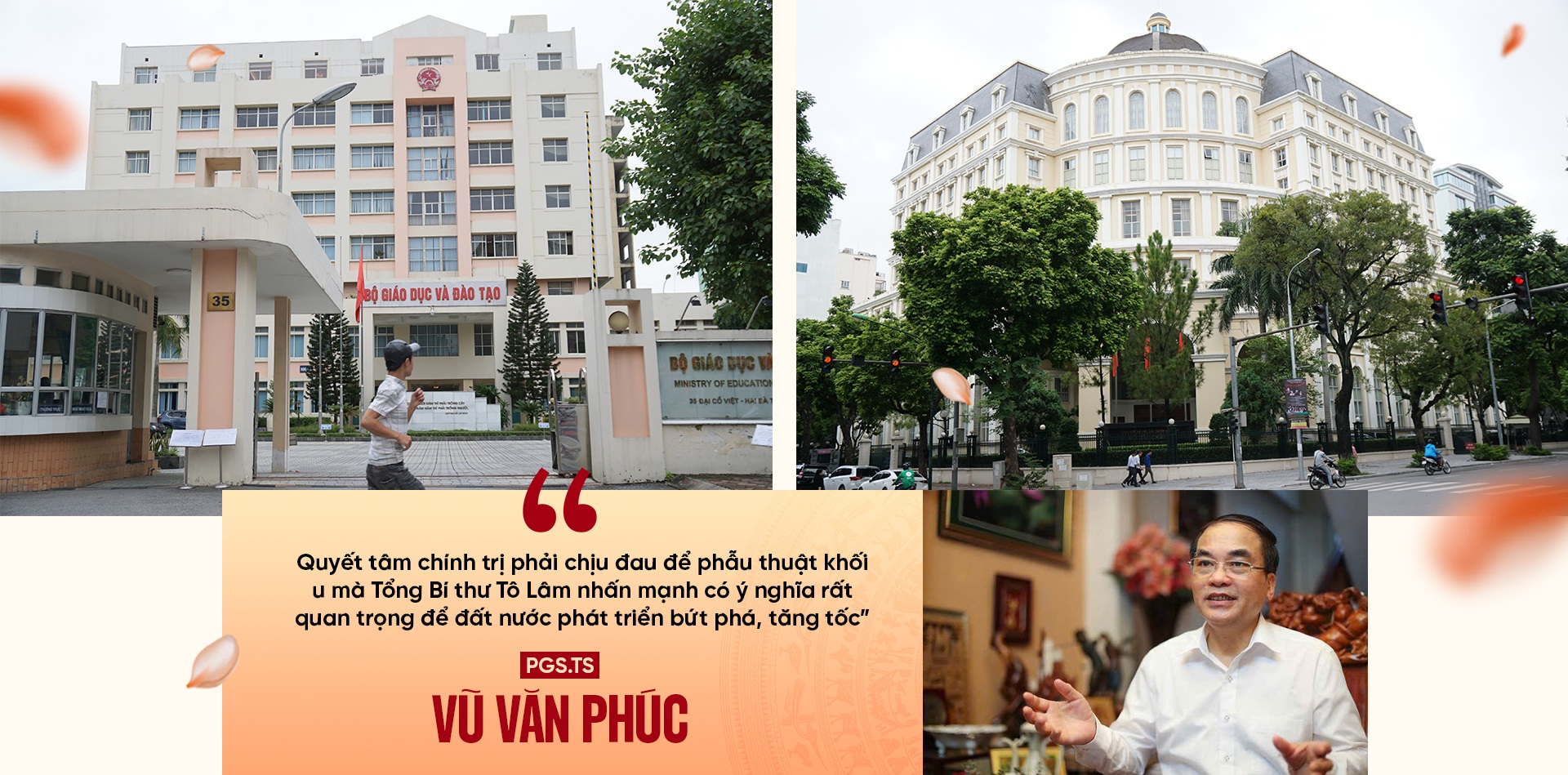
The revolution to streamline the apparatus is being carried out at lightning speed with unprecedented milestones. As the General Secretary has repeatedly emphasized, this revolution is expected to focus on streamlining the apparatus and organizing the Party's agencies to truly be the intellectual core, the "general staff", and the vanguard leading the State agencies.
Along with that is building truly streamlined advisory bodies of the Party Committee; advisory staff with political qualities, capacity, good professional qualifications, professional expertise, responsibility and proficiency in work...
Reforming the apparatus also needs to ensure that the Party's leadership tasks do not overlap with its management tasks; distinguish and clearly define the specific tasks of leaders at all levels in different types of Party organizations, avoid the situation of making excuses or having duplication or formality; strongly innovate working style and manners in a scientific and professional direction, with the motto "right role, right lesson".
Besides, we must continue to focus on building and streamlining the organizational apparatus of the Party, National Assembly, Government, Fatherland Front, and socio-political organizations to operate effectively and efficiently...
Along with cutting unnecessary intermediaries, reorganizing the organization in a multi-sectoral and multi-disciplinary direction, it is necessary to promote decentralization and delegation of power in the direction of "local decisions, local actions, local responsibilities", combined with strengthening inspection and supervision, clearly defining responsibilities between the Central and local levels, between local authorities, between managers and workers.
Thank you!
Content: Hoai Thu
Design: Thuy Tien



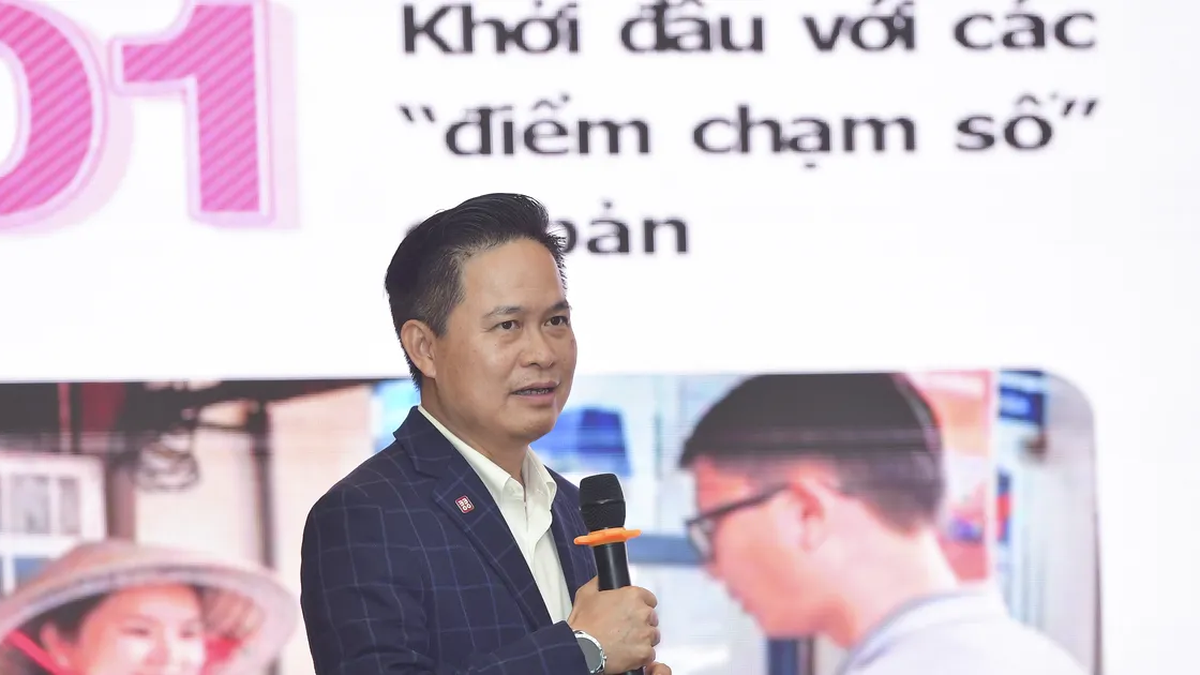
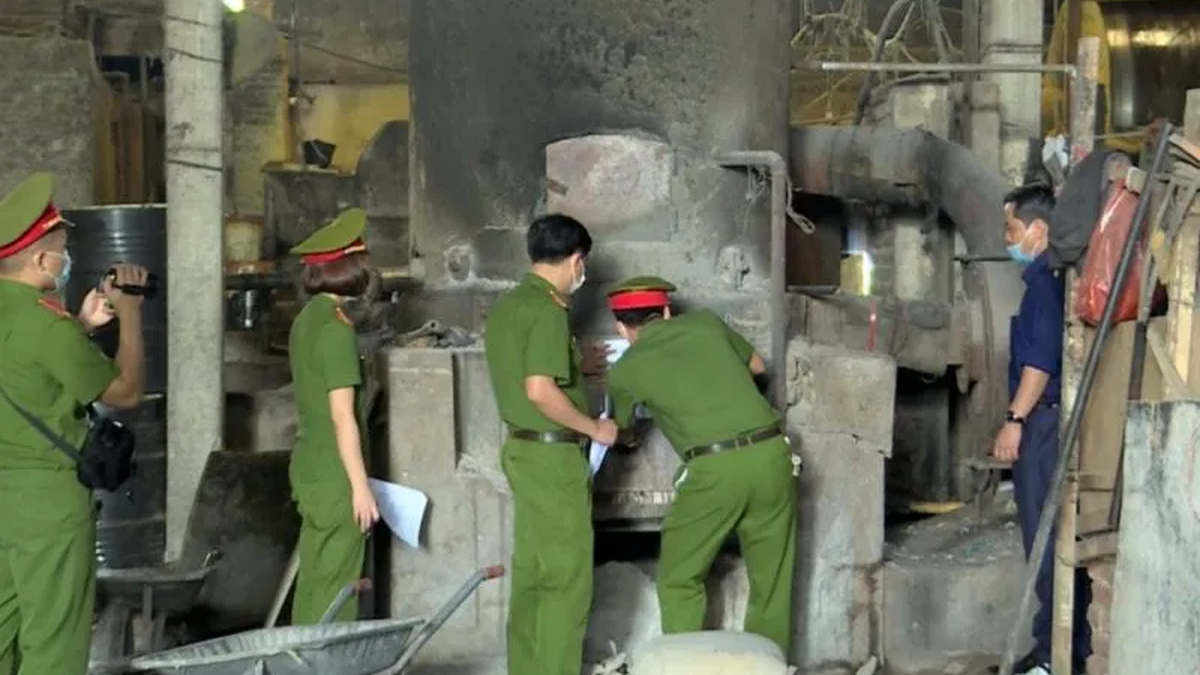
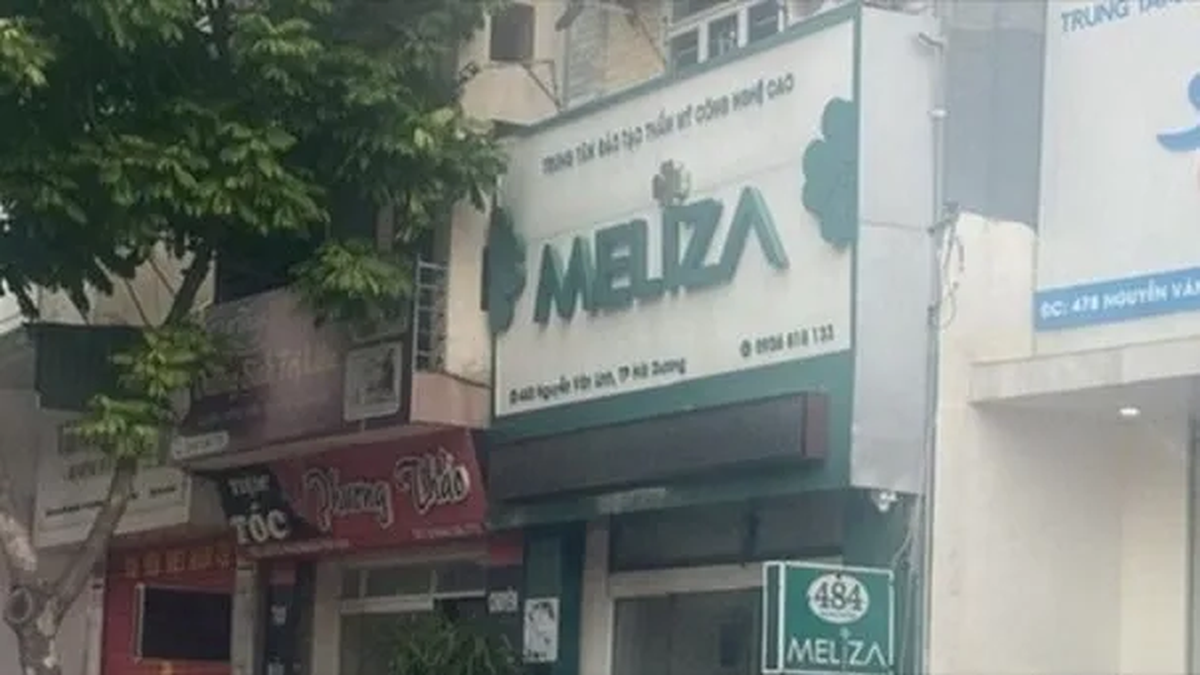

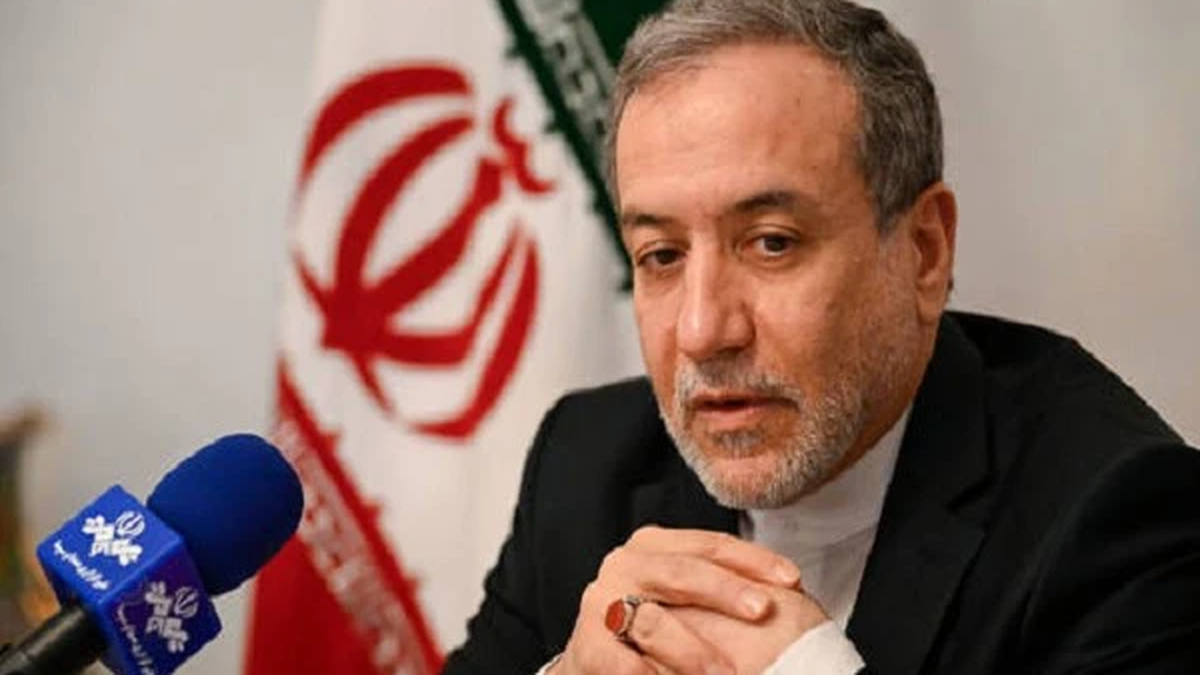
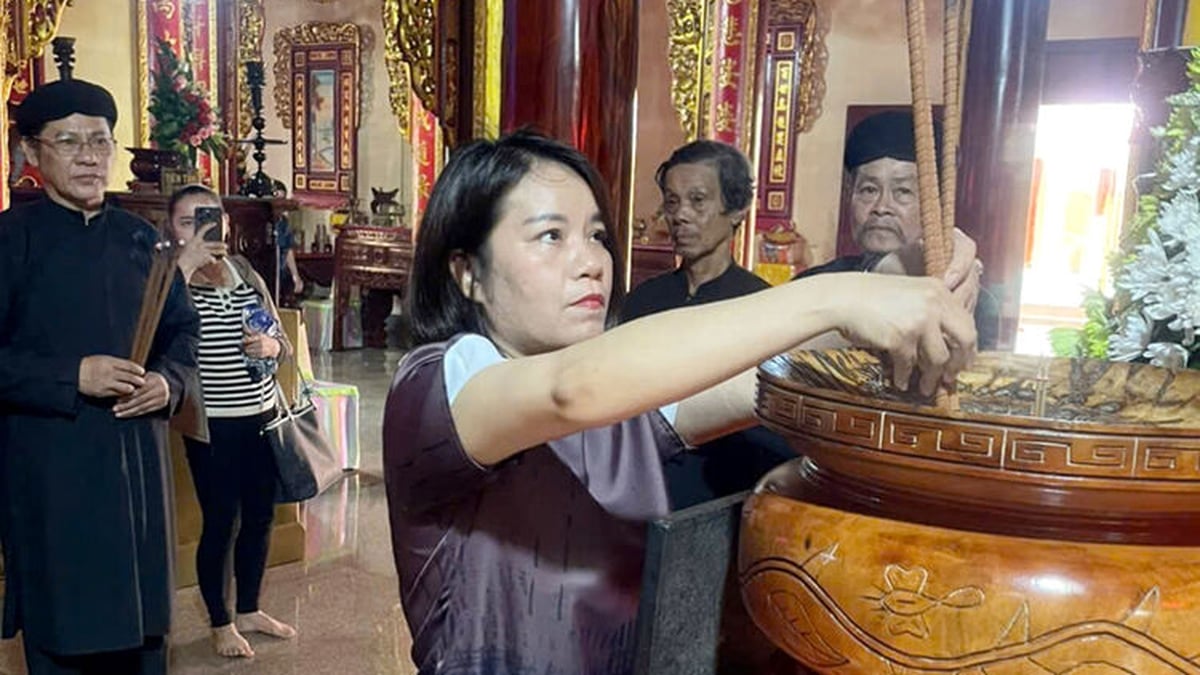

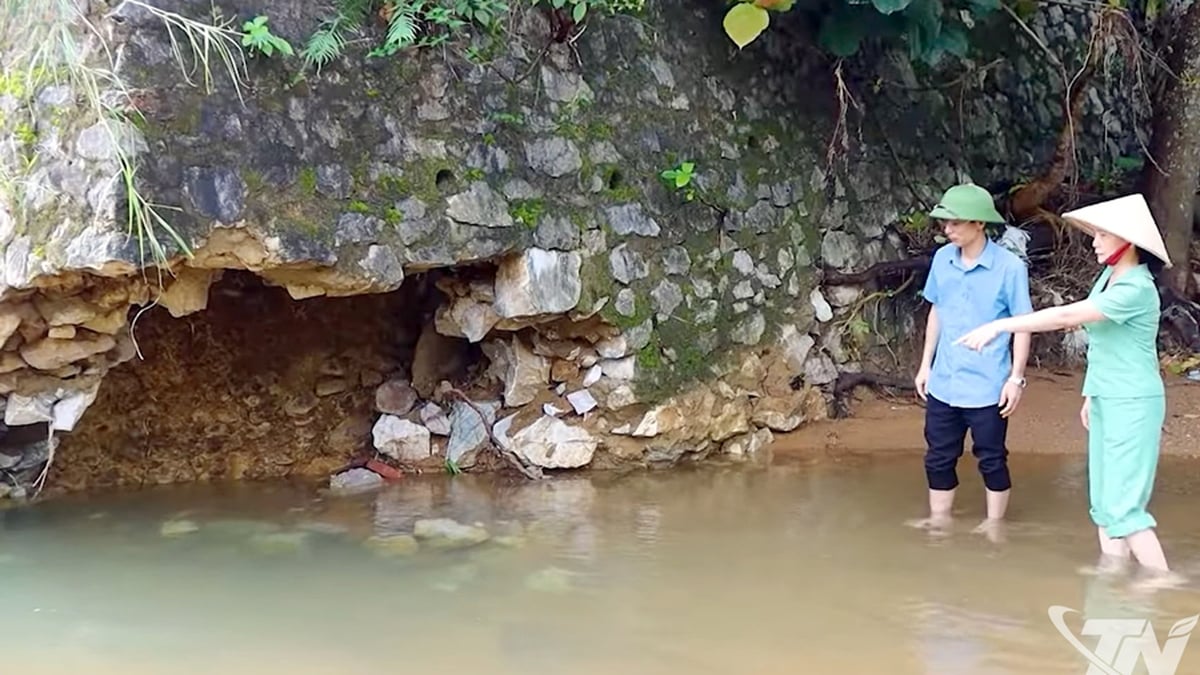





































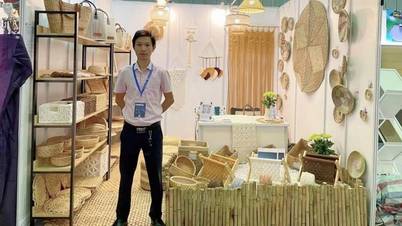


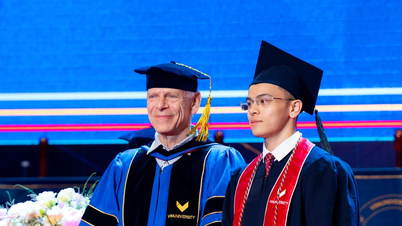










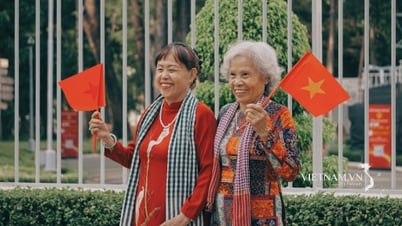



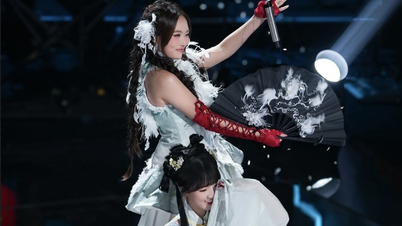





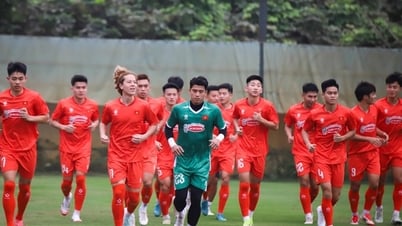



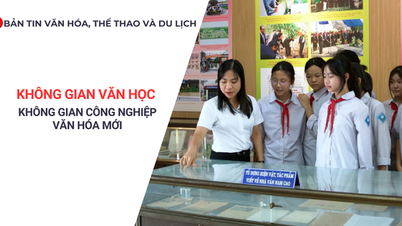
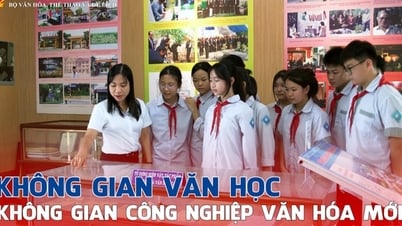
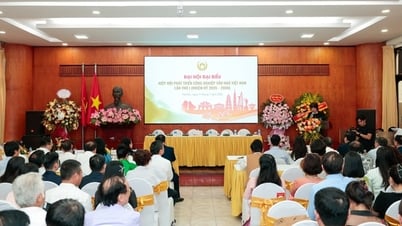






















Comment (0)